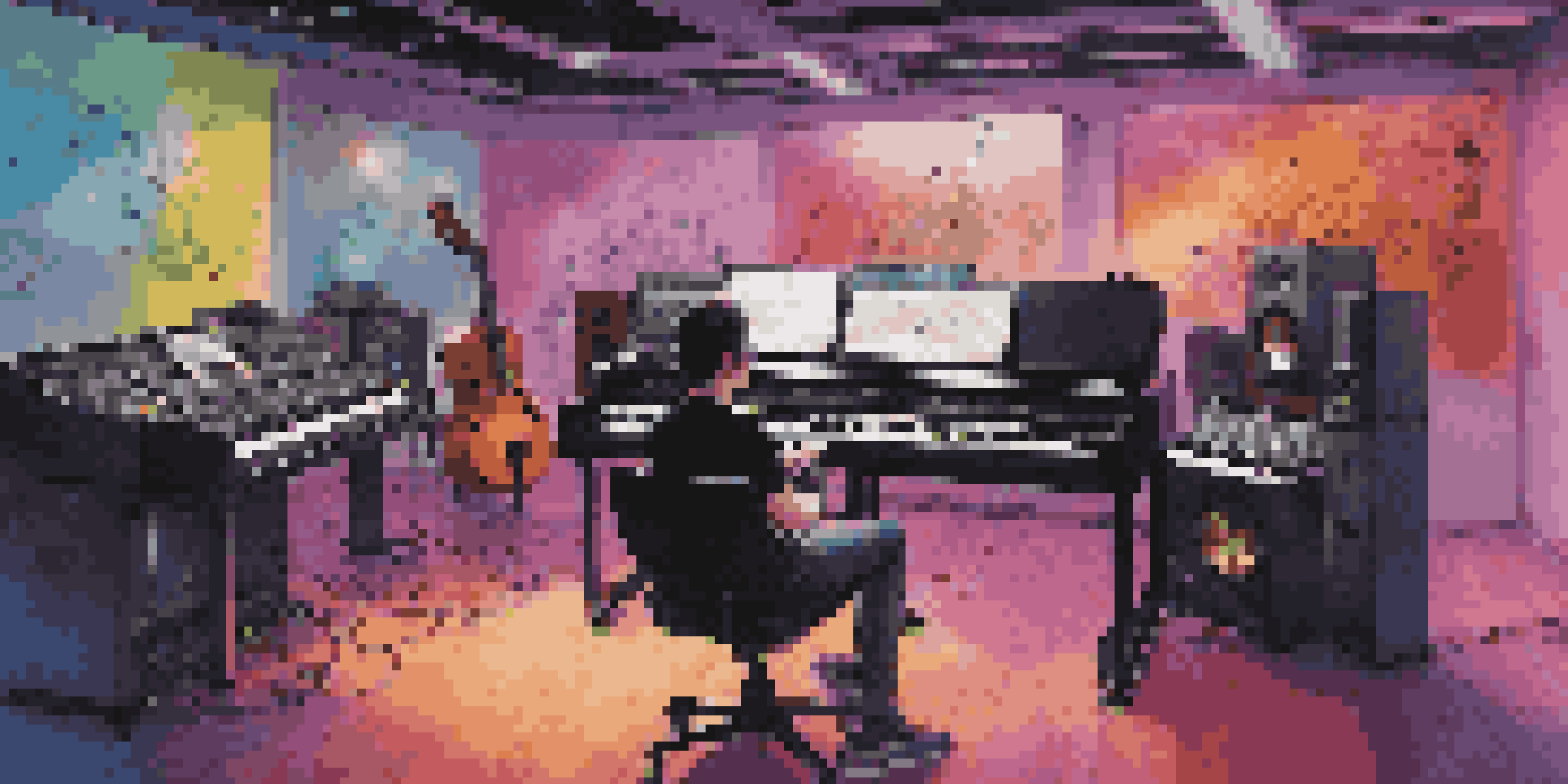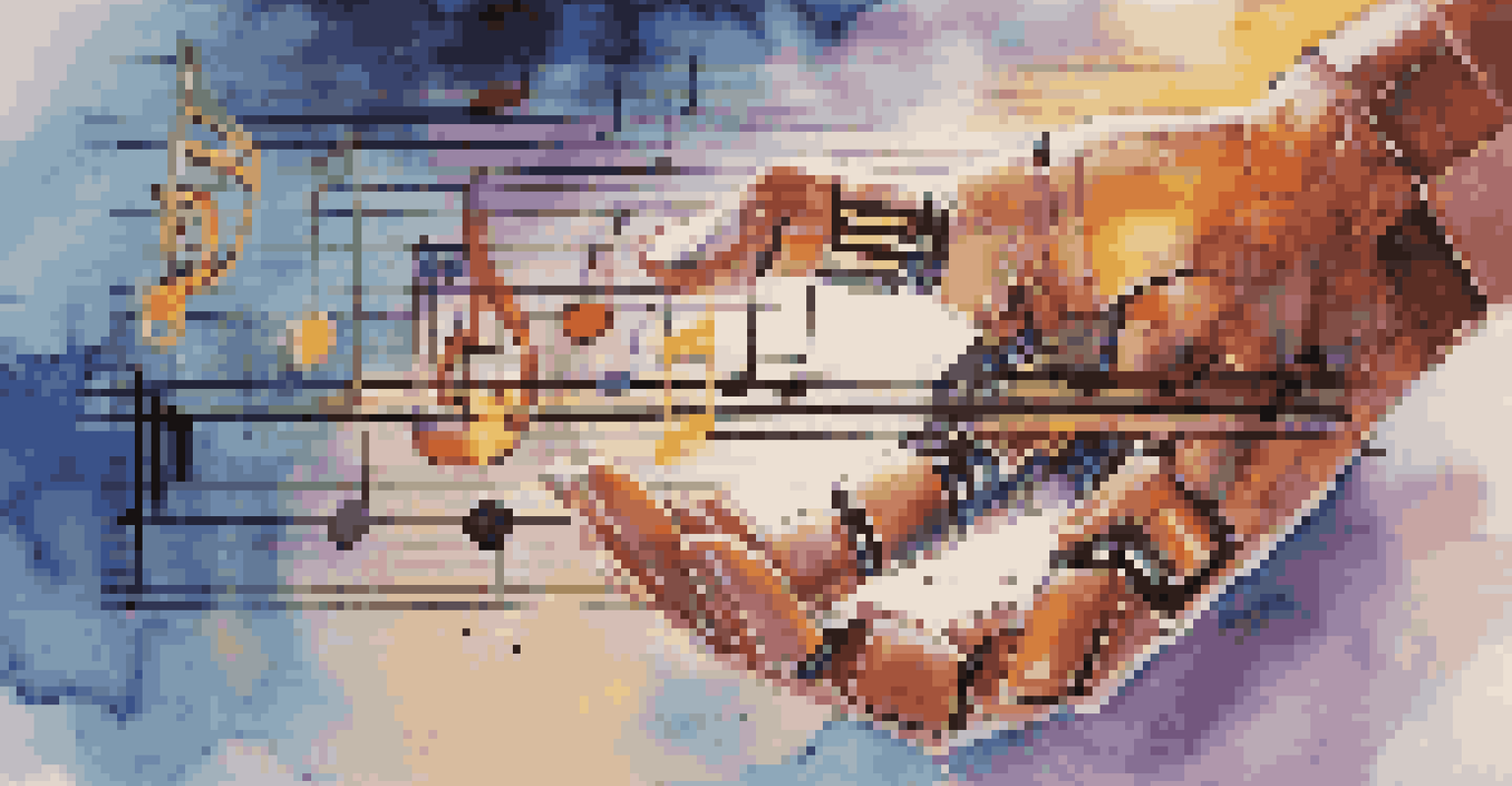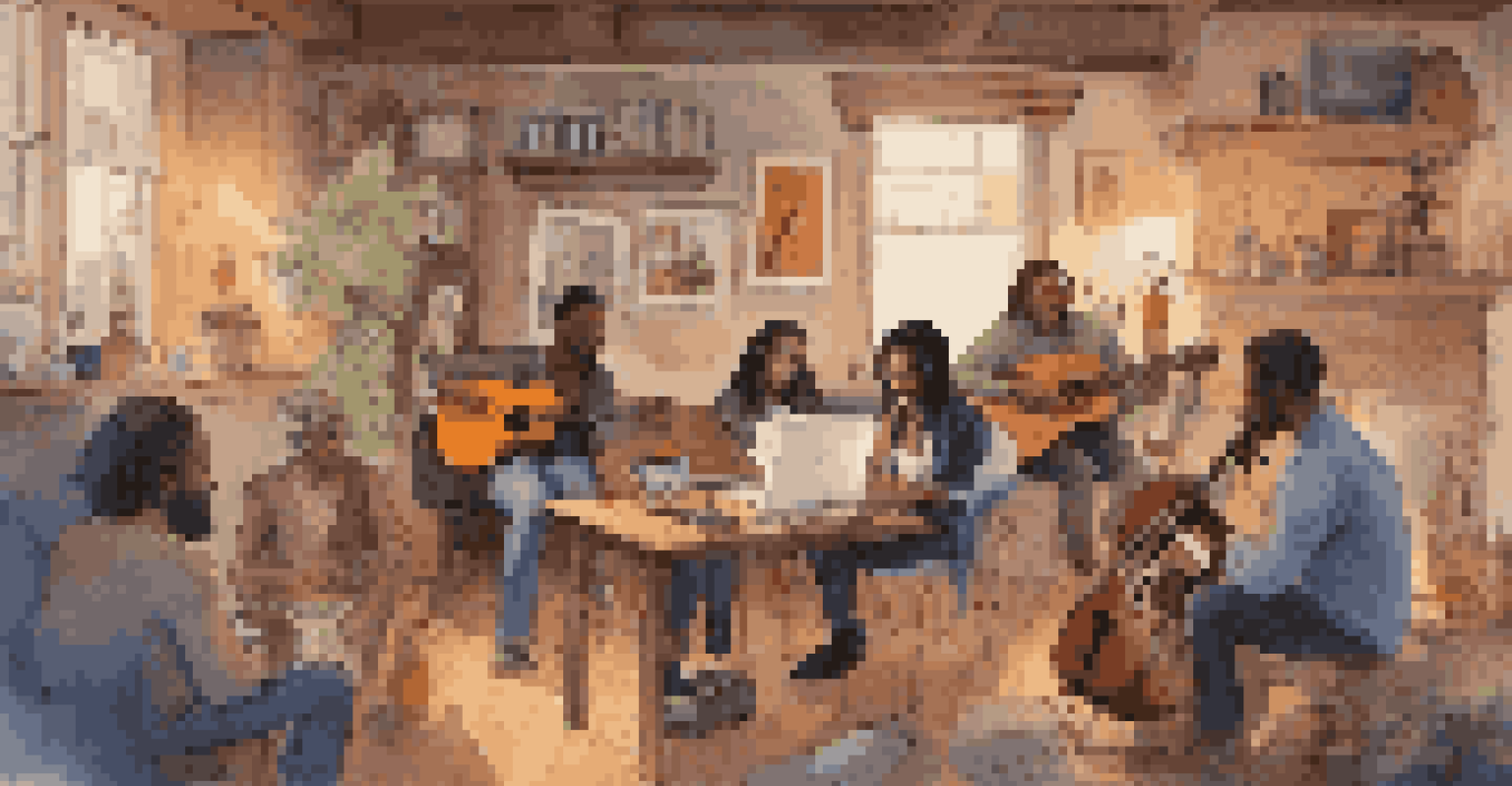Can AI Replace Human Musicians? A Critical Examination

The Rise of AI in Music Creation and Production
In recent years, artificial intelligence has made significant strides in the music industry, with algorithms capable of composing original tracks. AI tools like OpenAI's MuseNet and Google's Magenta are just a few examples of how technology is being harnessed to create music that can rival human compositions. This shift raises the question: can AI truly replicate the emotional depth and creativity that human musicians bring to their work?
Music can change the world because it can change people.
While AI can analyze patterns and generate melodies based on vast datasets, it lacks the innate understanding of human experiences that often shape music. Human musicians draw from their emotions, life stories, and cultural backgrounds, infusing their work with unique perspectives that resonate with listeners. AI, meanwhile, operates within the confines of its programming, which can limit its creative potential.
Despite these limitations, AI-generated music has found its place in various settings, from film scores to background music for video games. This growing acceptance suggests that while AI may not replace human musicians, it can complement their work, offering new tools for creativity and innovation in the industry.
Understanding the Emotional Connection in Music
One of the most compelling aspects of music is its ability to evoke emotions and connect people. Human musicians often pour their feelings into their art, creating a profound bond with their audience. Songs that tell stories of love, heartbreak, and joy are often rooted in the artist's personal experiences, making them relatable and impactful.

AI, on the other hand, does not experience emotions in the same way. While it can mimic styles and produce catchy tunes, the lack of genuine emotional depth can hinder its ability to connect with listeners on a personal level. This distinction highlights a fundamental difference between human-made and AI-generated music, one that is difficult to bridge.
AI Enhances, Doesn't Replace Musicians
While AI offers innovative tools for music creation, it cannot replicate the emotional depth and authenticity that human musicians bring to their art.
Listeners often seek authenticity and vulnerability in music, qualities that are inherently human. As a result, while AI can assist in the music-making process, it may never fully replace the emotional resonance that human musicians deliver through their art.
The Role of Collaboration Between AI and Musicians
Rather than viewing AI as a competitor, many artists are embracing it as a collaborator. By incorporating AI tools into their creative processes, musicians can explore new sounds and ideas that they might not have considered otherwise. This collaboration can lead to innovative compositions that blend human intuition with machine-generated creativity.
The only truth is music.
For example, some artists use AI to generate musical ideas or to create backing tracks, allowing them to focus more on their lyrical content and vocal performances. This partnership not only streamlines the production process but also pushes the boundaries of traditional music-making, leading to exciting new genres and styles.
As technology continues to evolve, the potential for collaboration between AI and human musicians will only grow. This symbiotic relationship can enhance the creative landscape, proving that AI's role in music is less about replacement and more about enhancement.
The Impact of AI on Music Genres and Styles
AI's influence on various music genres is already noticeable, particularly in electronic music and pop. Algorithms can analyze trends and predict what elements will resonate with audiences, allowing producers to craft hits that are statistically likely to succeed. This data-driven approach can streamline the music creation process, but it also raises concerns about artistic integrity.
As AI-generated music becomes more prevalent, there is a risk that genres may become homogenized, with formulas taking precedence over original creativity. This shift could lead to a landscape where unique voices are overshadowed by trends dictated by algorithms, potentially stifling innovation in music.
Collaboration Fuels Creative Growth
The partnership between AI and musicians fosters new sounds and genres, pushing the boundaries of traditional music-making.
However, this challenge also presents an opportunity for human musicians to carve out a niche by embracing their individuality. By pushing back against AI-generated norms, artists can showcase their unique styles and perspectives, ensuring that diverse voices continue to thrive in the industry.
Ethical Considerations of AI in Music
The rise of AI in music brings forth important ethical considerations, particularly regarding authorship and ownership. If an AI system generates a piece of music, who owns the rights to that creation? This question becomes increasingly complex as AI tools become more sophisticated and capable of producing original works.
Moreover, there’s the potential for AI to replicate existing styles or even mimic well-known artists, which raises issues around intellectual property. Musicians may find their work sampled or imitated without consent, leading to disputes over originality and creativity in the digital age.
Addressing these ethical dilemmas will be crucial as the music industry continues to evolve alongside technology. As we navigate this uncharted territory, open discussions about the implications of AI in music will be essential for ensuring that both human artists and technological innovations can coexist harmoniously.
The Future of Music: A Hybrid Approach
Looking ahead, the future of music is likely to be a blend of human artistry and AI innovation. This hybrid approach can lead to the creation of new genres and styles that reflect a unique fusion of technology and human emotion. As artists experiment with AI tools, we may witness a renaissance in music that emphasizes collaboration and creativity.
This future could also democratize music-making, as AI tools become more accessible to aspiring musicians. With the ability to create high-quality sounds without extensive training, more people can express themselves through music, leading to a richer and more diverse musical landscape.
Ethics of AI in Music Creation
As AI-generated music becomes more prevalent, important ethical questions regarding authorship and originality must be addressed.
Ultimately, the coexistence of AI and human musicians can enrich the music industry, pushing boundaries and inspiring a new generation of artists. By embracing both technology and creativity, we can look forward to a vibrant future filled with innovative sounds and stories.
Conclusion: Embracing the Human Element in Music
In conclusion, while AI has made significant advancements in music creation, it is unlikely to fully replace human musicians. The unique emotional connections, personal experiences, and authenticity that artists bring to their work are irreplaceable. Instead of viewing AI as a threat, we should celebrate its potential to enhance and expand the creative process.
As we move forward, it will be essential for musicians to find ways to incorporate AI into their artistry while retaining their individuality. By doing so, they can harness the power of technology to push their creative boundaries without losing the essence of what makes music so special.

The future of music lies in collaboration—between artists, technology, and audiences. By embracing this hybrid approach, we can ensure that music remains a vibrant, expressive, and deeply human experience for generations to come.